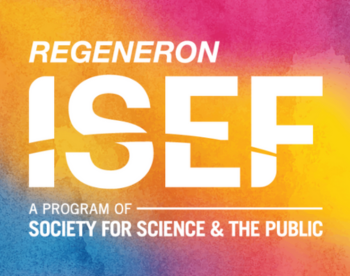30 Psychology Research Topics Suitable for High School Students
[elementor-template id="1670"]
Psychology is a discipline that systematically and scientifically explores human psychological phenomena, behavioral patterns, and their underlying psychological processes. Its broad scope includes cognitive psychology, social psychology, developmental psychology, and clinical psychology, aiming to reveal the nature and laws of human psychological activities. It also investigates the interactions between these activities and various factors, including biological, social, and cultural dimensions.
Psychological research provides a scientific framework and explanatory models for understanding the complex psychological phenomena of humans, enriching the body of human knowledge and laying the foundation for the development of related disciplines. On a practical level, it helps to predict and regulate human behavior, improve mental health conditions, and enhance quality of life, while offering scientific guidance for fields such as education, industrial production, and social governance.
Psychological research not only broadens high school students' intellectual horizons and deepens their understanding of their own and others' psychological activities, but also cultivates their critical thinking and scientific inquiry skills. By studying psychology, high school students will learn to apply scientific methods to analyze issues, form rational judgments, and gain substantial improvement in interpersonal communication and self-adjustment. This process lays a solid foundation for their future academic exploration and professional career.
How can high school students participate in Psychologica Research?
Conducting psychological research as a high school student is a challenging yet highly rewarding process. Here are some key steps and considerations to help high school students effectively conduct psychological research.
1. Selecting a Research Topic
Choosing a research topic is the first step toward successful psychological research. Start by considering your own interests. Selecting a field you are passionate about will help maintain your enthusiasm and motivation throughout the research process. For instance, if you are interested in adolescent mental health issues, you might choose this area as your research topic. Additionally, consider the practical application of the topic. Psychological research should aim to solve both theoretical and real-world problems.
2. Defining the Research Focus
After selecting a research topic, you need to further refine the specific content and goals of the study. This involves reviewing existing literature and research findings to determine your topic's position within the field of psychology. When defining your focus, try to avoid duplicating existing research. Instead, look for new angles or explore certain aspects of existing studies in greater depth. For example, if you are interested in adolescent mental health problems, you might choose to explore the causes, impacts, and solutions for the mental health issues of a specific group of adolescents, such as high school students.
3. Conducting a Literature Review
After defining your research topic, performing a thorough literature review is essential. By consulting relevant books, academic journals, and online resources, you can understand the current state of research and development trends in the field. A literature review helps identify research gaps and provides a theoretical foundation for subsequent studies. Additionally, it allows you to learn about previous research methods and results, serving as a reference for your own research. For instance, if you are studying the factors influencing academic stress among high school students, review existing literature to learn how previous studies have researched academic stress and its contributing factors, as well as the methods and results used.
4. Research Methods and Implementation
Choosing an appropriate research method is crucial for conducting psychological research. Psychological research methods are diverse, including surveys, interviews, and experiments. When selecting a method, consider the specific needs of your research topic, as well as the suitability and feasibility of the method. For example, if you want to research high school student academic stress, you might choose to use surveys or interviews, as these methods can deeply explore participants' genuine thoughts and feelings. Surveys can be used to measure both academic stress and coping strategies, with statistical analysis revealing the relationship between different stress levels and coping methods. Interviews allow for in-depth conversations with participants to understand the sources, manifestations, and coping strategies of their academic stress.
5. Data Collection and Analysis
Data collection and analysis are critical steps in the research process. It is important to use scientific and systematic methods to collect and analyze data. During data collection, ensure the accuracy and reliability of the data to avoid distortion and error. The purpose of data analysis is to transform raw data into meaningful information. Common data processing methods include data cleaning, data coding, and data analysis. Data analysis is the core of psychological research; it helps to reveal the relationships between variables and test research hypotheses.
In this issue, Embark's psychology mentors carefully consider the practical abilities and interests of high school students and have selected 30 psychology research topics suitable for them. These topics are designed to guide high school students in applying what they have learned to real research, providing strong support and direction for their academic exploration journey, ultimately achieving a dual enhancement of academic literacy and practical skills.
Intersection of Artificial Intelligence and Mental Health Research
1.Application and Optimization of AI in Psychological Assessment Tools
Explore how artificial intelligence can enhance the accuracy and efficiency of psychological assessment tools. Use machine learning algorithms to optimize test items and analysis to more precisely evaluate mental health status.
2.Impact of Intelligent Recommendation Systems on Access to Mental Health Resources
Study the role of intelligent recommendation systems in providing mental health resources, analyzing their impact on teenagers' access to information, and exploring how personalized recommendations can improve the accessibility and effectiveness of mental health services.
3.AI-Assisted Early Warning Systems for Psychological Disorders
Investigate the establishment of early warning systems for psychological disorders using AI technologies, analyzing behavioral data and emotional changes to identify potential mental health issues early for timely intervention.
Adolescent Psychology Research in the Digital Age
4.Relationship Between Social Media Usage Habits and Adolescents’ Self-Esteem
Research how different social media usage habits affect adolescents' self-esteem. Investigate the connection between frequent social media use and self-esteem, and the varying impact of different types of social media content.
5.Long-Term Effects of Cyberbullying on Teenage Mental Health
Analyze the long-term impact of cyberbullying experiences on adolescents’ mental health development. Study its persistent effects on their self-esteem, social skills, and emotional regulation, and how psychological interventions can mitigate these impacts.
6.Information Overload and Adolescents' Attention Span
Explore the impact of information overload in the digital age on adolescents' ability to concentrate. Analyze how information overload leads to distracted attention and how training and education can help young people tackle this challenge.
Integrative Research on Neuroscience and Adolescent Development
7.Relationship Between Brain Development and Learning Capacities in Adolescents
Use neuroimaging techniques to study the connection between the brain development process and learning capacities in adolescents. Explore how the development of different brain regions affects learning efficiency and how educational interventions can optimize this process.
8.Emotional Regulation and Adolescent Mental Health
Study the relationship between the cultivation of adolescents' emotional regulation abilities and their mental health. Explore the long-term effects of different emotional regulation strategies on adolescent mental health and how education and life skills training can enhance their emotional regulation capabilities.
9.Role of Neuroplasticity in Adolescent Learning
Analyze the application and effects of neuroplasticity theory in adolescent learning processes. Investigate how neuroplasticity affects adolescents' learning abilities and outcomes, and how educational methods can fully harness neuroplasticity.
Innovative Psychology Research Topics
10.Application of Virtual Reality Technology in Psychotherapy
Explore the potential applications of virtual reality (VR) technology in the treatment of psychological disorders, assessing its effectiveness in treating conditions like phobias and post-traumatic stress disorder (PTSD), and how VR can provide safer and more effective psychotherapy.
11.Impact of Mindfulness Meditation on Adolescent Mental Health
Study the effects of mindfulness meditation on enhancing adolescent mental health, reducing stress, and alleviating anxiety. Explore its role in improving adolescents' emotional regulation and resilience, and how it can be promoted in schools and families.
12.Relationship Between Adolescent Creativity and Psychological Traits
Analyze the relationship between adolescent creativity and psychological traits such as openness and curiosity. Explore how different psychological traits affect the development of creativity in adolescents and how education and family environments can cultivate creativity and related psychological traits.
Social Psychology and Adolescent Development
13.Impact of Peer Relationships on Adolescent Psychological Development
Study the role of peer relationships in adolescent psychological development. Explore how different types of peer relationships, such as friendships and teamwork, affect adolescents’ self-esteem, social skills, and emotional regulation, and how to optimize peer relationships through school and family environments.
14.Impact of Family Environment on Teen Mental Health
Analyze the impact of the family environment on adolescent mental health. Examine the role of different parenting styles, family atmospheres, and parental psychological health on adolescent mental health and how family interventions can enhance it.
15.Role of School Support Systems in Adolescent Mental Health
Study the role of school support systems, such as counseling, teacher support, and peer support, in enhancing adolescent mental health. Explore the effectiveness and best practices of different support systems and how school policies and management can improve their efficacy.
[elementor-template id="1677"]
Cultural Psychology and Adolescent Development
16.Impact of Cultural Background on Adolescent Mental Health
Explore the impact of different cultural backgrounds on adolescent mental health. Study how cultural values, social norms, and family structures affect adolescents' mental health and development, and how to provide effective psychological support in multicultural settings.
17.Impact of Cultural Adaptation on Adolescent Mental Health
Analyze the impact of the cultural adaptation process on adolescent mental health. Explore the psychological challenges and coping strategies faced by immigrants and international students, and how education and psychological support can help them adapt to new cultures smoothly.
18.Relationship Between Cultural Identity and Adolescent Mental Health
Study the role of cultural identity in adolescent mental health. Explore how cultural identity influences adolescents’ self-esteem, social adaptation, and psychological well-being, and how to cultivate cultural identity and mental health in multicultural environments.
Educational Psychology and Adolescent Development
19.The Relationship Between Learning Motivation and Adolescent Mental Health
Explore how learning motivation impacts adolescent mental health. Study the differences between intrinsic motivation and extrinsic motivation on learning outcomes and psychological well-being, and examine how educational methods can enhance both motivation and mental health.
20.The Impact of Educational Technology on Adolescent Mental Health
Analyze the role of educational technology in adolescent mental health. Investigate how online learning and virtual classrooms affect psychological adaptation, learning outcomes, and mental health, and discuss ways to optimize the learning experience and mental health through educational technology.
21.The Impact of Educational Environment on Adolescent Mental Health
Study how different educational environments (such as traditional classrooms versus open learning spaces) affect adolescent mental health. Explore the educational environment's influence on self-esteem, social skills, and emotional regulation, and how school management and policies can optimize these environments.
Developmental Psychology and Adolescent Development
22.The Development of Self-Identity During Adolescence
Examine the process of self-identity development during adolescence. Study its impact on psychological health and social adaptation, and investigate how education and social support can help adolescents establish a positive self-identity.
23.Research on Adolescent Emotional Development
Analyze the characteristics and patterns of emotional development in adolescents. Investigate how emotional development influences mental health and social behavior, and examine how family, school, and social environments can support emotional development.
24.Research on Social Skills Development in Adolescents
Study the development process and influencing factors of adolescent social skills. Discuss the role of social skills in mental health and social adaptation, and explore educational and psychological interventions to enhance adolescents' social skills.
Health Psychology and Adolescent Development
25.The Relationship Between Adolescent Dietary Behaviors and Mental Health
Explore the relationship between adolescent dietary behaviors and mental health. Study the impact of different dietary patterns on psychological well-being, and examine how dietary education and lifestyle interventions can improve adolescent mental health.
26.The Relationship Between Adolescent Physical Activity and Mental Health
Analyze the link between physical activity and adolescent mental health. Discuss the effects of different types and frequencies of exercise on mental health, and explore how sports education and activity interventions can enhance psychological well-being.
27.The Relationship Between Sleep and Mental Health in Adolescents
Study the relationship between sleep and mental health in adolescents. Explore how sleep quality, duration, and patterns affect mental health, and discuss sleep education and behavioral interventions to optimize adolescent sleep.
Clinical Psychology and Adolescent Development
28.Psychological Treatment for Adolescent Anxiety
Explore psychological treatment methods for adolescent anxiety disorders. Study the effectiveness of cognitive-behavioral therapy and relaxation training in alleviating anxiety, and examine integrated approaches of psychological and pharmacological treatments to improve adolescent mental health.
29.Psychological Treatment for Adolescent Depression
Analyze strategies for the psychological treatment of adolescent depression. Investigate the effectiveness of psychodynamic therapy and interpersonal therapy in reducing depressive symptoms, and explore integrated interventions using psychological and pharmacological treatments to enhance mental health.
30.Early Intervention for Adolescent Psychological Disorders
Research early intervention methods for adolescent psychological disorders. Examine the role of psychological screening, early intervention strategies, and familial support in the prevention and treatment of psychological disorders, and discuss how early interventions can improve mental health and quality of life.
You can view more psychology research topics for high school students here.
Embark Exploration Program
Since its inception in 2016, Embark has focused on designing tailored scientific research training programs for teenagers, aiming to ignite their research potential. Our core team members are graduates from top American universities, possessing deep academic backgrounds and rich educational experience.
Embark brings together over 3,000 outstanding mentors from world-renowned institutions such as the Ivy League, MIT, Caltech, Johns Hopkins University, and Carnegie Mellon University to provide premier research guidance for students.
We offer personalized one-on-one research mentorship, crafting unique research topics based on each student's interests and strengths. Embark not only helps students systematically enhance research skills and build solid research frameworks but also closely integrates research with real-world applications, ensuring students comprehend the value of research. These experiences significantly enhance students' competitive edge in university applications.
For more details, please visit the Embark Exploration Program. If you have any questions or need further information, feel free to contact us. We are more than happy to assist and explore collaboration opportunities.
[elementor-template id="1682"]



